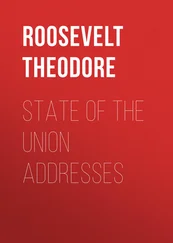“We’re working on that right now, but first we need to focus on getting you into Russia,” responded Morrell.
“And how do we plan on doing that? More bull?”
“Kind of. You’re coming with us to pick up Frank Leighton.”
“Where is he?”
“His op was a bit different than the others. We know his was Maritime. He was to sail his nuke right into St. Petersburg harbor, so unless he’s moved from where his nuke was hidden, which there’s no reason to believe he has, right now he’s on a small, uninhabited island off the coast of Finland. With the Russians knowing as much as they do about him, he’s no good to us anymore. The plan is for us to get him and his device to safety on the mainland, while you sail his boat out into the Baltic toward St. Petersburg.”
“Right into the arms of the Russian Navy. This doesn’t feel so good.”
“Don’t worry,” said Morrell, “You’ll have help.”
“Help from whom?”
“You’ll be working with a SEAL Team stationed aboard theUSS Connecticut.” Morrell saw the sudden shift in Harvath’s expression. “Feeling a little bit better about it now?”
“Maybe, but how are you planning on getting to Leighton if the Russians have him under surveillance?”
“We’ll be using the Navy’s new Advanced SEAL Delivery System.”
Having been part of the Navy’s Special Warfare Development Group-a SEAL think tank in Little Creek, Virginia, where new weapons, equipment, communication systems, and tactics are developed, Harvath was very familiar with the 65-foot long mini-submarine known as the ASDS, which could covertly deposit operatives practically within spitting distance of any shoreline anywhere in the world.
“That might get you in under the Russians’ radar,” said Harvath, “but what about Frank Leighton’s? This guy is former Army Intelligence. You can’t just walk right up to him and say, ‘Surprise! We’re the good guys and there’s been a change of plans.’ If he doesn’t know you’re coming, who knows what he’ll do.”
“We know,” said Morrell. “He’s on a do-or-die mission, and if taken by surprise, his options would be very limited. None of the potential scenarios are ones we’re willing to accept. That’s why you need to reestablish communication and prep him on our arrival.”
“Why me?”
“Because you’ve already spoken with him once. If we throw anyone else in the mix at this point, it could blow everything out of the water.”
In light of the fact that they were discussing a waterborne operation, Harvath didn’t very much care for Morrell’s choice of words.
“We’ve got one very serious problem,” replied Harvath. “Leighton expects our next contact to be via the emergency contact plan established by Gary Lawlor, and I have no idea what that is.”
There was less than four hours left and Harvath wondered what the hell his next move was going to be. Pulling out his cell phone, he dialed Herman Toffle at the hospital for an update on Gary.
“He’s still in surgery,” said Herman, “but it looks like the doctors are getting ready to close. I was going to wait until they had finished and wheeled him into recovery before calling you.”
“How long?” asked Harvath.
“From what the nurse said, about forty-five minutes to an hour, but that’s just for completion of surgery. He’s under general anesthesia. There’s no telling how long it will take until he comes around and when he’ll be able to communicate.”
“I’m on my way,” said Harvath, hanging up the phone. Turning to Morrell he said, “I need your car keys and DeWolfe.”
“What’s up?” asked Morrell, as he tossed Harvath the keys to his rental.
“I’ve got an idea of how we might be able to put some lipstick on this pig. If I’m right, maybe we can stop things from getting too ugly, too early.”
As Harvath engaged the rental car’s onboard navigation system and selected his destination-the Virchow-Klinikum campus of Berlin’s Charité Hospital, located along the banks of Berlin’s Spandau Canal, DeWolfe toyed with Gary’s burst transmitter, trying to find a way into the encryption program.
“You talked about numeric codes,” said Harvath, speeding through an intersection to avoid a changing light. “In the SEALs we’d normally have a four-digit code with a backup in case the first one was ever compromised. For our system to work, we would take whatever the current code was and subtract that day’s date. That was it.”
“That’s essentially how this works. Your missions were probably like the ones we’ve been deployed on. We’d only need to do burst transmissions back to the command and control structure, not to other operatives in the field, so you didn’t need lots of additional codes.”
“Exactly.”
“That’s when it’s easy. As the commo guy, I got to set our encryption codes myself. I wanted something significant that I could always remember, so whenever I could, I liked to use important dates from the Revolutionary War. My favorite was 418.”
“April 18th?” asked Harvath.
“Yup. April 18th, 1775. We’d subtract the 418 from 1775 and then add the date of whatever day we were transmitting on. That was our code. As far as communications are concerned, April 18th, 1775 was one of the most historic.”
“April 19th was when the battles of Lexington and Concord happened,” said Harvath, quiet for several moments as he thought before responding. “Then the night before would have been when Paul Revere was charged with taking the message to Concord that the British were coming.”
“Very good” replied DeWolfe. “You know your stuff.”
“Yeah, I only wish I knew Gary’s stuff.”
“You seem to know him pretty well. Like I said, it is probably going to be something that was significant for him and easy for his operatives to remember. Do you have any idea what numbers would have been memorable or significant for Gary? They’d need to be numbers that his men could also relate to.”
Harvath racked his head for strings of numbers that would have meant something to Gary, but which also would have held relevance for his operatives. That meant, though, that anything personal to Gary, like his anniversaries or addresses, wouldn’t qualify and so Scot dismissed those right off the bat. The hard thing was that on top of not being a computer guy, Gary wasn’t much of a numbers guy either.In fact, thought Harvath,it would probably be a toss-up over which he hated more -computers or math.
When it came to logistical and organizational competence, Gary had both of those qualities in spades, but like it or not, the old man would have had to have used some sort of math to organize his burst transmissions. Harvath wondered if maybe he was over-thinking the problem before him.Keep it simple, stupid, he heard from somewhere in the back of his mind.
He spent the rest of the drive trying to free associate, but without very much luck.
When they arrived at the hospital, Herman was waiting for them at the nurses’ station. Harvath quickly introduced DeWolfe and then followed Herman down the hall to the recovery room, where Hollenbeck and Longo were standing guard outside.
“They just brought Gary in,” said Hollenbeck.
“How’s he doing?” asked Harvath. “Has he come around yet?”
“Dr. Trawick’s with him. It’s pretty serious,” replied Longo, stepping aside and holding the door open for Harvath. As Herman and DeWolfe tried to follow, Longo held up his arm. “Too many people inside already. I’m sure you guys can understand.”
Harvath looked back and gave his companions a polite nod that indicated he would be okay by himself.
“Sure,” replied Herman. “We understand. Scot, if you need anything, we’ll be in the waiting area.”
Читать дальше












